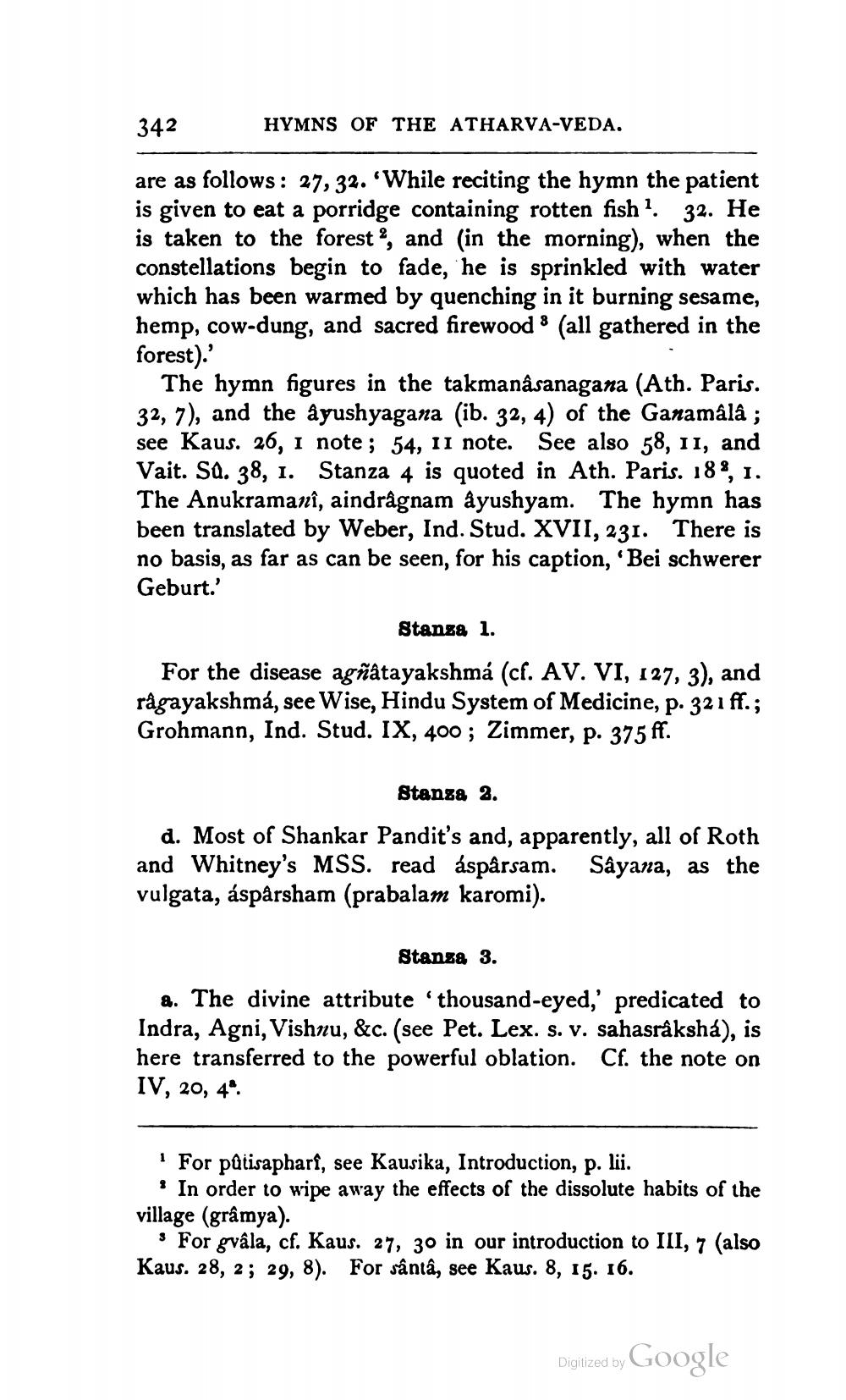________________
342
HYMNS OF THE ATHARVA-VEDA.
are as follows: 27, 32. 'While reciting the hymn the patient is given to eat a porridge containing rotten fish?. 32. He is taken to the forest, and (in the morning), when the constellations begin to fade, he is sprinkled with water which has been warmed by quenching in it burning sesame, hemp, cow-dung, and sacred firewood 8 (all gathered in the
forest).'
The hymn figures in the takmanâsanagana (Ath. Paris. 32, 7), and the dyushyagana (ib. 32, 4) of the Ganamâlâ ; see Kaus. 26, I note; 54, 11 note. See also 58, 11, and Vait. Sa. 38, 1. Stanza 4 is quoted in Ath. Paris. 189, 1. The Anukramanî, aindragnam ayushyam. The hymn has been translated by Weber, Ind. Stud. XVII, 231. There is no basis, as far as can be seen, for his caption, 'Bei schwerer Geburt.
Stanga 1. For the disease agñatayakshmá (cf. AV. VI, 127, 3), and rågayakshmá, see Wise, Hindu System of Medicine, p. 32 1 ff.; Grohmann, Ind. Stud. IX, 400 ; Zimmer, p. 375 ff.
Stanza 2. d. Most of Shankar Pandit's and, apparently, all of Roth and Whitney's MSS. read áspårsam. Sâyana, as the vulgata, áspårsham (prabalam karomi).
Stansa 3.
8. The divine attribute thousand-eyed,' predicated to Indra, Agni, Vishnu, &c. (see Pet. Lex. S. V. sahasråkshá), is here transferred to the powerful oblation. Cf. the note on IV, 20, 4*.
For pæiisapharf, see Kausika, Introduction, p. lii. . In order to wipe away the effects of the dissolute habits of the village (grâmya).
For gvâla, cf. Kaus. 27, 30 in our introduction to III, 7 (also Kaus. 28, 2; 29, 8). For sântâ, see Kaus. 8, 15. 16.
Digitized by Google




